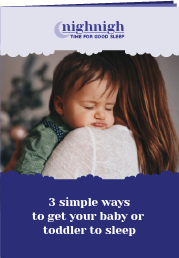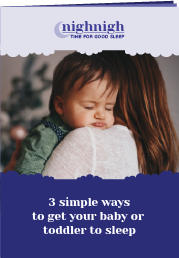Providing our kids with the best start is about the simple things like a healthy diet, an education, and a loving, caring, stable home.
But what about including sleep in that lineup when we know that diet, education, and mental and physical health are all affected when the family isn’t getting enough sleep?
Globally, getting good sleep has become increasingly difficult to achieve with educators reporting kids falling asleep during the day in class. Some schools have addressed the problem by including nap rooms for tired students. But napping can be an issue when daytime deep sleep alleviates nighttime sleep pressure.
Irregular bedtimes and chaotic routines are just some of the things that can lead to prolonged time to fall asleep and overnight waking that needs parent intervention.
When asked about sleep, most parents want to find ways to help their child fall and return to sleep without their help. But where do you start? Mostly, it starts with Google, asking family, friends, the family GP, the teacher, and the local pharmacist. All can offer help but is it the right help and what happens when the solution only works for a short time?
That’s when fixing sleep can seem like an impossible hurdle to jump over and sleep deprivation can go on for years and even into adulthood.
Parents get sleep help when…?
The biggest driver for seeking professional help often comes from how parents feel when they reach the point of desperation and cannot take any more sleepless nights, but the perspective of the parents’ discomfort might need reconsidering with a recently published study in ‘The Lancet.’

The Adolescent Brain Cognitive Development (ABCD) study examined the effect of insufficient sleep for more than 4,000 kids aged 9-10 years to see if lack of sleep affected brain development in early adolescence. The study defined sleep insufficiency as under 9 hours per night; (Children aged 6-11 years should ideally get between 9-11 hours of sleep per night), and taking into consideration gender, socioeconomic and puberty status, outcomes measured included behavioural problems, mental health, cognition, and structural and resting-state functional brain measures using MRI.
The results of the study
Children that slept less than 9 hours at the start of the study had less brain volume in areas of the brain responsible for attention, memory, and inhibition control factors compared to those with healthy sleep habits, explained head researcher Dr. Ze Wang of the University of Maryland.
How does inadequate sleep affect kids?
At the beginning of the study, those kids sleeping under 9 hours had more mental health and behavioural challenges with impulsivity, stress, depression, anxiety, aggressive behavior, and thinking problems. Cognitive impairment, learning issues, decision-making, conflict solving, and working memory were all affected compared with the better sleepers. As part of a longitudinal study, the participants were reviewed again after two years and researchers found the same differences persist, suggesting long-term harm from insufficient sleep.
Is time the healer for bad sleepers?
Advise like ‘time is the healer’ can compromise early sleep intervention and risk potentially serious consequences, as outlined in the study.
The insomnia diagnostic handbook identifies a series of conditions to diagnose insomnia: the sleep problem occurs at least three times a week and occurs for three or more months.
This simple information could be an excellent motivator for parents to seek help early.

The first question to ask!
One of the first questions to ask your professional is; How much training have you had in the field of sleep? This means you are seeking advice from the that have trained in sleep science and can match the science to the clinical research for best possible outcomes.
As the study highlights, it’s not known if these brain changes correct themselves but, as the ABCD study is ongoing, researchers will have the opportunity to add more follow-up measurements to build on their results and hopefully determine that interventions can improve sleep and reverse neurological damage.
The correct sleep intervention from the get-go is the best way to ensure you give your child the best opportunity for a healthy and happy future.
Sweet Dreams
from
Deb Herdman






